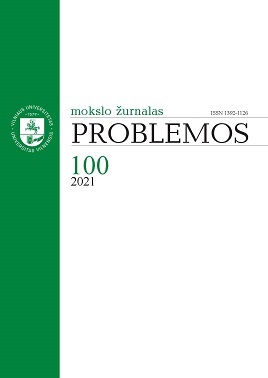Immanuelis Kantas ir politikos tikrumo klausimas
Immanuel Kant and the Question of Certainty in Politics
Author(s): Alvydas JokūbaitisSubject(s): Ethics / Practical Philosophy, Political Philosophy, Contemporary Philosophy, Phenomenology, Ontology
Published by: Vilniaus Universiteto Leidykla
Keywords: Descartes; Kant; morality; politics; certainty;
Summary/Abstract: Researchers of Kant’s political philosophy have not paid enough attention to the problem of certainty in politics which is inseparable from the distinction between phenomenon and noumenon. The primacy of practical reason means that morality has a higher value than knowledge. This is a fundamental presupposition of Kant’s philosophy. However, this emphasis on the importance of morality leads to the problematic question of certainty in politics. The recognition of the primacy of morality seems to lead to a situation where politics loses the certainty that belongs to the sphere of noumenon. Such a situation seems to lead to an impossible situation when the distinction between phenomenon and noumenon reappears in the theory of practical reason. The paper puts forward a thesis that for Kant morality is the only ground that allows speaking about the certainty of politics. However, his understanding of certainty in politics has its drawbacks. Politics is dependent not only on the ontology of morality that was emphasized by Kant, but it is also dependent on the kind of certainty that one finds in the sphere of interpersonal relationships. Kant did not pay enough attention to this aspect which remains outside the sphere of the universal law of morality.
Journal: Problemos
- Issue Year: 2021
- Issue No: 100
- Page Range: 75-86
- Page Count: 12
- Language: Lithuanian

